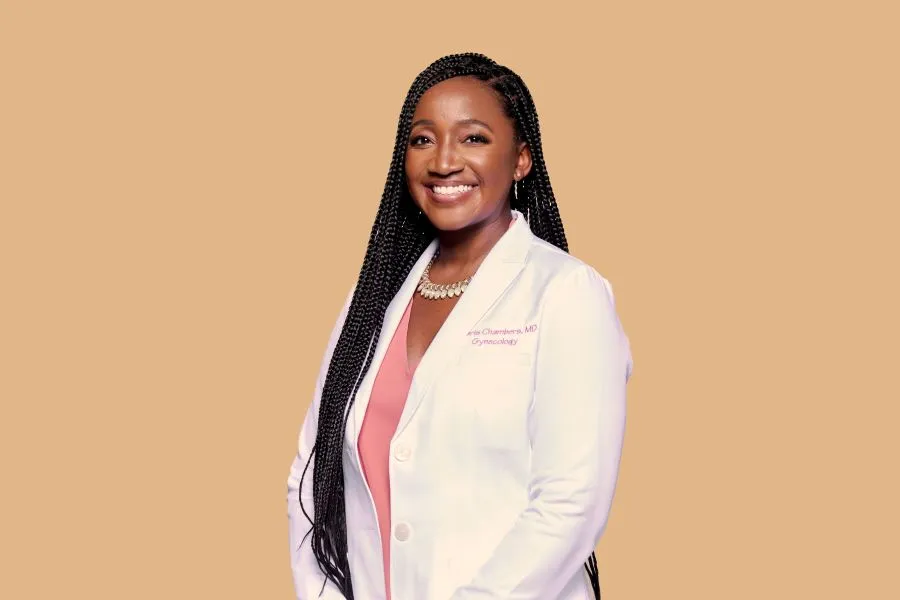Period of confusion: Clue exposes women’s health gaps fueled by online misinformation
Key takeaways
- Clue discovers that most women lack basic knowledge about their menstrual cycles, with over half unable to name all four stages.
- Online misinformation is fueling confusion and anxiety about reproductive health, especially among younger women relying on social media.
- Clue is addressing these education gaps by appointing Dr. Charis Chambers to lead efforts in improving menstrual health literacy and awareness.

Clue has revealed that people who menstruate are often ill-informed about their own cycles. The period tracking app has found that over half (58%) of women are unable to correctly name all four stages of the menstrual cycle — menstruation, ovulation, follicular phase, and luteal phase.
Following the findings, Clue has appointed Dr. Charis Chambers, MD, its chief medical officer, to help women better understand their bodies.
“It’s shameful that we haven’t done more research to understand puberty, menarche, and menopause. It’s absurd that we don’t know the long-term effects of many ingredients contained in menstrual products. It’s indefensible that women’s health research gets a tiny fraction of the financial resources that men’s health research does,” Chambers tells Personal Care Insights.
“Some of the biggest information gaps exist in just understanding basic physiology. Millions of women’s deepest health questions begin or end with ‘Is this normal?’”
Since consumers are not adequately taught about their bodily functions, they search for health knowledge on their own. The most popular resource these days for learning is the internet.
![]() Clue’s research reveals that women are seeking information on their periods. Clue reports that almost all women (82%) are worried about encountering reproductive health misinformation online. Over half (55%) of the women surveyed have encountered medical information online that they do not trust.
Clue’s research reveals that women are seeking information on their periods. Clue reports that almost all women (82%) are worried about encountering reproductive health misinformation online. Over half (55%) of the women surveyed have encountered medical information online that they do not trust.
The women’s health information gaps and people’s craving to understand their bodies create space for misinformation to grow. Consumers are increasingly trying to gather facts about their health, but amid a wealth of opinions, persistent myths, and profit-centered systems, robust online information can be overwhelming and often misleading.
More than half (58%) of American women aged 16–24 report relying on unverified sources like social media to understand their reproductive health. Clue has found that over 40% of women feel confused, and 37% anxious, after encountering conflicting health information on the internet.
Censuswide (on behalf of Clue) conducted the research involving 2,000 US menstruating consumers aged 16 and over.
Online misinformation
Almost half (40%) of the survey participants reveal that they have followed at least one unqualified “healthfluencer” for advice on periods, hormones, or fertility.
Chambers says that when women are misinformed about their health, they tend to worry when they should not and are falsely reassured when they should worry. She explains that social media is a large driver of women’s health misinformation circulating online — particularly among younger generations.
“[People] tend to seek out DIY treatments where medication and expert management are necessary. They hide what should be shared, and surrender what should be protected, and carry the blame for what never was in their control. The effects are emotional, physical, social, and personal.”
The board-certified OB-GYN tells us that the more innocent origin of misinformation is well-intended theories or myths that have been passed down from generations. These were created to make sense of bodily functions at a time when there was a lack of conclusory evidence.
However, the more sinister side comes from “people who seek to disempower people with cycles in an effort to manipulate or control them.”
“This leads to disinformation, with the difference being that of intent,” says Chambers.
Health is wealth
The saying “The greatest wealth is health” can be attributed to the 19th-century US sanitary reform movement, which used the phrase to highlight the economic value of public health. The sentiment that singular and collective wellness is valuable is easily transferred in today’s reproductive health conversations.
“When we aren’t informed about our cycles, we cannot be fully informed about our health. Health is the key to wellness, fulfillment, joy, and purpose,” says Chambers. Clue appoints Dr. Charis Chambers to close women’s health information gaps.
Clue appoints Dr. Charis Chambers to close women’s health information gaps.
“It’s important for women to be informed about their cycles because cycle changes can be the first sign that something is off with their health. Our cycles depend on many different hormonal, metabolic, and reproductive aspects, so monitoring different characteristics can give us insight into a wealth of information about our health.”
Regarding menstrual cycles, 28% don’t know when they are most fertile. Approximately one in six (17%) women cannot identify whether their cycles are irregular or not.
“The majority of women are not as informed about their cycles as they should be. This is due to stigma, shame, and the historical devaluing of education and research around women’s reproductive health,” states Chambers.
“The impact of misinformation is confusion, stress, distorted self-worth, and fractured trust. These lead to isolation, loneliness, delayed diagnosis, and unnecessary suffering.”
One in five (20%) women believe you can’t get pregnant during your period — a common fertility myth — while almost 1 in 10 (9%) believe infertility is primarily a female problem.
Thirty-six percent of survey respondents say they mistrust the information they are exposed to about hormonal contraception, and a further 47% claim this has made them less likely to use it. Meanwhile, 62% of women say they wish they had learned more about fertility earlier.
Chambers explains that misunderstandings about the menstrual cycle can mean years of delayed diagnosis and treatment.
“Clue’s survey highlights how common this problem is — 34% of women reported having a reproductive health concern dismissed as ‘normal’ by a provider, only to later discover it was anything but.”
Irregular period cycles can indicate larger or underlying health issues.
“More painful cycles may suggest the presence of endometriosis, structural abnormalities, or other inflammatory processes,” says Chambers.
 Many women turn to social media for menstrual health advice. “Cycles that get shorter or longer in length may suggest hormonal or metabolic dysregulation that can occur in the brain, ovaries, thyroid, adrenal glands, or more. Heavier or prolonged bleeding might indicate bleeding disorders, liver issues, the presence of uterine anomalies, uterine fibroids, polyps, or more.”
Many women turn to social media for menstrual health advice. “Cycles that get shorter or longer in length may suggest hormonal or metabolic dysregulation that can occur in the brain, ovaries, thyroid, adrenal glands, or more. Heavier or prolonged bleeding might indicate bleeding disorders, liver issues, the presence of uterine anomalies, uterine fibroids, polyps, or more.”
Industry friend or foe
Chambers tells Personal Care Insights that the industry is uniquely positioned to perpetuate or challenge misinformation around what is normal, acceptable, valuable, and worthy.
“Personal care brands that are science-backed, acknowledge diversity in lived experience and expression, and seek first to support the health and well-being of their customers are the brands I think may help the issue.”
“Those that prioritize profits, inflate claims, and conflate a flawed sense of what is desirable with that which is healthy are worsening the issue.”
Chambers flags that public dialogue around period health can help strengthen collective understanding. She says that increasing conversation, awareness, and advocacy of the importance of menstrual education and reproductive health research can be done by anyone, anywhere, and at any scale.













